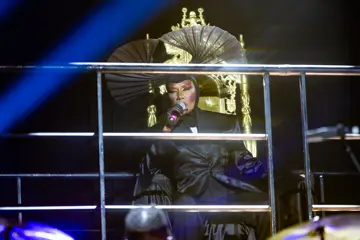Australia gets a bum rap sometimes. Whiny talking heads looking for hits opine that this country has no culture. That's a fairly nebulous concept to begin with, and it occurs to this reviewer that not only is that idea rubbish, but that idea is also very strange. To say a country of 22 million people and over 50,000 years of collective cultural memory has no modern representation is bizarre. There is culture in this country. It exists in places independent of trend and whim. Forget the ANU anthropology department, and forget the Museum of Australia. One needs to look no further than the local corner hotel to find a thriving culture that literally screams its colonial Australian heritage. The Bald Faced Stag is one such establishment, and playing a selection of modern traditional cultural anthems over the long weekend (celebrating a relatively young and European cultural holiday) was Bitzer, a mongrel of a supergroup comprised of several champions of the Golden Era of Australian Rock.
Leading the pack was Lucy Desoto and Steve Mulry (brother of the legendary Ted Mulry), who swapped keys and vocal duties. Steve Edmonds provided lead guitar, decorated drummer Mick O'Shea pounded away in the background, slide guitarist Mick Arnold smoothed out the corners a little and Steve King provided the backbone on bass. It was the Steve and Mick show, starring Lucy.
Bitzer are a cover band, and a bloody good one, too. They focus on the best songs in our colloquial pop music collection. They opened up with an AC/DC classic, Live Wire. The group belted out the Divinyls' hit I'll Make You Happy, Rain by Dragon, Stevie Wright's classic Evie (Let Your Hair Hang Down), and Rose Tattoo's seminal Bad Boy For Love. They opted for a slow take on the latter, milking the built-in swagger effect.
Like some of Australia's better aspects, the abundant charm these songs have rely on a shabby confidence and a unique punk/aesthete attitude. The art of pub rock is deadly serious but deeply irreverent and good humoured. The egalitarian nature of it meant that there was little to distinguish the crowd from the band save the fact some of us had instruments, some of us didn't. Everyone knew the songs, everyone loved the songs, and judging from the (very) young ones in attendance, this won't change for a long time.
Don't miss a beat with our FREE daily newsletter















